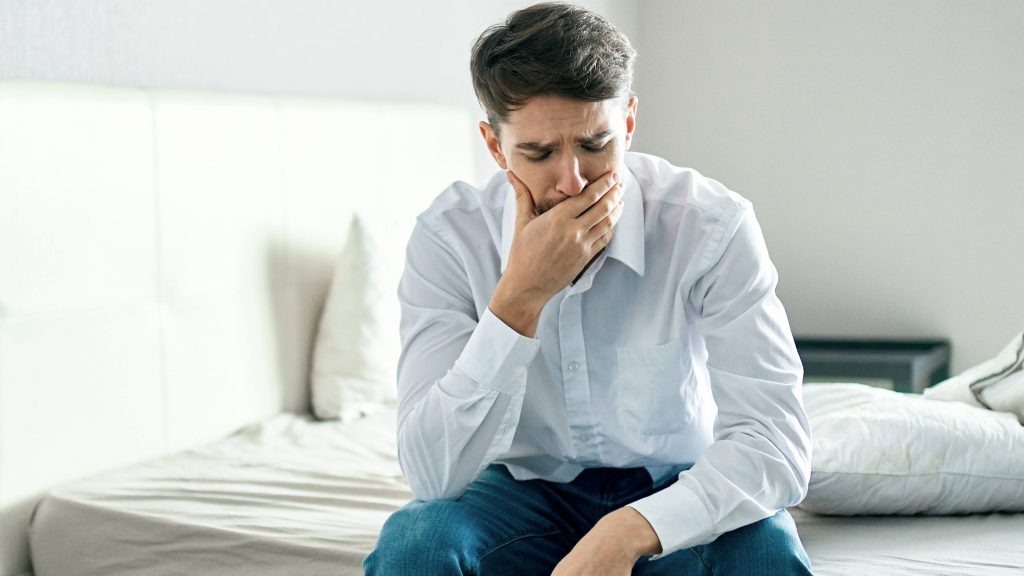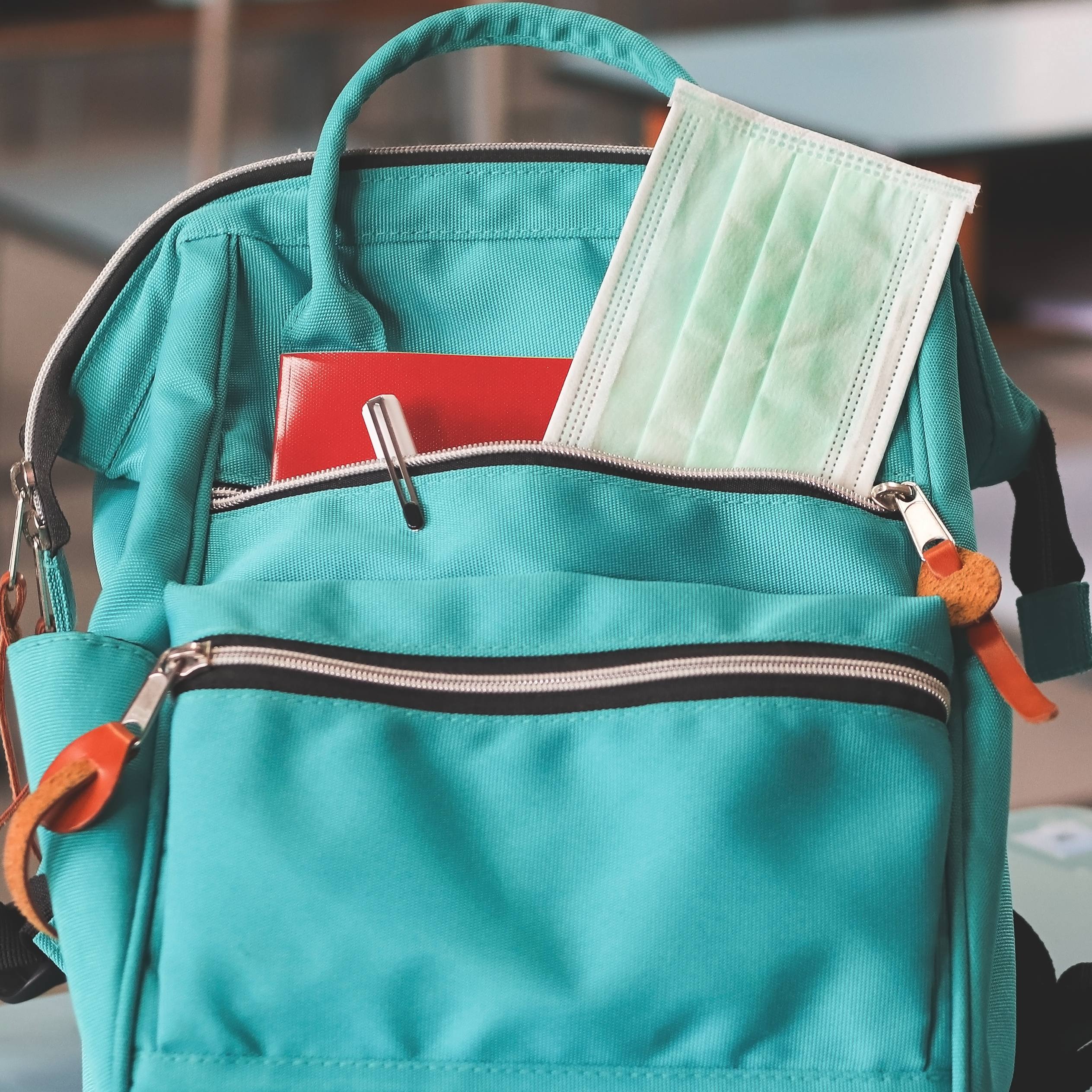
The emotional and psychological impacts of the pandemic can lead to feelings of hopelessness and thoughts about suicide. Learn the signs and what to do.
________________________________________
During the coronavirus disease 2019 (COVID-19) pandemic, you may experience anxiety, fear, frustration, sadness and loneliness — to the point that those feelings become constant and overwhelming. Existing mental health conditions, including severe anxiety and major depression, may worsen. If you're feeling hopeless and having thoughts about suicide, or you're concerned about someone else, learn how to find help and restore hope.
Major stressors related to the COVID-19 pandemic
For immediate help
If you're feeling overwhelmed by thoughts of not wanting to live or you're having urges to attempt suicide, get help now.
- Call 911 or your local emergency number immediately.
- Call a suicide hotline. In the U.S., call the Suicide & Crisis Lifeline at 988 any time of day — press "1" to reach the Veterans Crisis Line or use Lifeline Chat.
Most often, suicidal thoughts are the result of feeling like you can't cope or recover when you're faced with what seems to be an overwhelming life situation. There's little data yet on the COVID-19 pandemic and its impact on the suicide rate. But clearly the pandemic has added intense emotional and mental stress to the lives of people around the world. Fear, anxiety and depression can stem from a wide range of concerns and experiences, from personal and family issues to work-related stress.
Personal and family concerns
Situations vary, but personal and family issues may include:
- Fear that you or your loved ones will get COVID-19
- No chance to be with and comfort your loved one who is seriously ill or dying in the hospital
- Grief over the loss of a loved one to COVID-19 or another illness
- Social isolation, especially if you live alone or in a facility where visitors are temporarily not allowed
- Being in close quarters with family under stay-at-home orders, which could increase the risk of spouse, partner or child abuse
- Starting or worsening of alcohol or drug misuse
- Having other mental health disorders, such as major depression, bipolar disorder, post-traumatic stress disorder or an anxiety disorder
Work-related concerns
Depending on the type of job you have, examples of work-related issues include:
- Anxiety due to working in a high-risk environment, such as in a hospital or nursing home, or being a first responder.
- Feeling overwhelmed working in crowded health care facilities that treat people with COVID-19, especially in places that may have a shortage of personnel and personal protective equipment.
- Feeling burned out and frustrated as a health care worker because you feel that you couldn't do enough for people with COVID-19 who died.
- Fear and anxiety about the increased risk of COVID-19 because you're an essential worker, such as a worker in the food or transportation industry, whose job requires serving the public in person.
- Worry about or actual loss of a job or business, causing financial hardship.
- Worry about how you'll provide basic needs for yourself and your family if you're out of work for an unpredictable amount of time or if you lose your job.
Warning signs of suicide
Whether you're having thoughts of suicide or know someone who feels suicidal, learn suicide warning signs and how to reach out for immediate help and professional treatment. You may save a life — your own or someone else's.
Suicide warning signs or suicidal thoughts include:
- Talking about suicide: for example, making statements such as "I'm going to kill myself" or "I wish I were dead."
- Getting the means to take your own life, such as buying a gun or stockpiling pills.
- Withdrawing contact with others more than usual, even though staying at home may be recommended during the COVID-19 pandemic: for example, not responding to any type of communication from others, such as calls, texts or other messages.
- Having mood swings, such as being emotionally high one day and deeply discouraged the next.
- Being preoccupied with death, dying or violence.
- Feeling trapped or hopeless about a situation.
- Excessively using alcohol or drugs.
- Changing your normal routine, including eating or sleeping patterns.
- Doing risky or self-destructive things, such as using drugs or driving recklessly.
- Giving away belongings or getting affairs in order when there's no other need to do so.
- Saying goodbye to people as if they won't be seen again.
- Developing personality changes or being severely anxious or agitated.
The unique circumstances of the COVID-19 pandemic, including little social interaction, may make it more challenging to identify those at risk of suicide. Warning signs aren't always obvious, and they may vary from person to person. Some people make their intentions clear, while others keep suicidal thoughts and feelings secret.
Reach out for help
During the COVID-19 pandemic, you can still reach out to others in a safe way and ask for help. Whether it's by phone, text or email or a trusted social media platform, don't be afraid to let others know that you're feeling overwhelmed and need support. At least get the conversation started.
If you think you may hurt yourself or attempt suicide, get help right away by taking one of these actions:
- Contact your health care provider or a mental health professional to help you cope with suicidal thoughts.
- Call a mental health crisis number or a suicide hotline. In the U.S., call the Suicide & Crisis Lifeline at 988 any time of day — press "1" to reach the Veterans Crisis Line or use Lifeline Chat.
- Call 911 or your local emergency number.
- Reach out to a close friend or loved one.
- Contact a minister, spiritual leader or someone else in your faith community.
Even after the immediate crisis passes, seek help to get appropriate treatment for suicidal thoughts and feelings and learn effective coping strategies. Keep a list of resources and numbers readily available. On your list, include contact numbers for your doctors, mental health professionals and crisis centers, as well as trusted friends or loved ones.
Click here to learn more about:
- When someone else is suicidal
- Prevention strategies
This article is written by Mayo Clinic Staff. Find more health and medical information on mayoclinic.org.
Information in this post was accurate at the time of its posting. Due to the fluid nature of the COVID-19 pandemic, scientific understanding, along with guidelines and recommendations, may have changed since the original publication date.
Check the Centers for Disease Control and Prevention website for additional updates on COVID-19. For more information and all your COVID-19 coverage, go to the Mayo Clinic News Network and mayoclinic.org.
Related Articles






